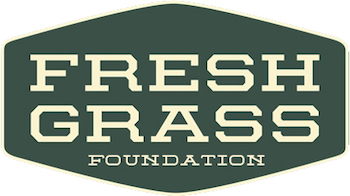A Q & A with Tall Heights
by Kelly McCartney (@theKELword) for FolkAlley.com
Round about five years ago, Paul Wright and Tim Harrington started busking on the streets of Boston playing cello and guitar, and singing harmonies to any and all who would listen. Since then, they’ve become Tall Heights, evolving their sound as they logged the miles. Their new release — ‘Holding On, Holding Out’ — is the result of that on-the-road refinement. The two still sing together, it’s just that the harmonies have been largely traded for a different approach.
Harmonies are at the core of what you guys do. Which artists inform your style? And are there parts your voices naturally fit in relation to each other, or do you get a little crazy sometimes and experiment?
Paul Wright: For harmonies, of course we dig the greats: Everly Brothers, Simon and Garfunkel, Fleetwood Mac, the Eagles. More recently, we’ve been admiring the work of the Milk Carton Kids, Lucius, Darlingside, and so many more. Usually, I sing lower and Tim sings higher, but that’s barely true anymore. We switch so much.
On the new EP, it’s primarily singing in unison. What prompted that shift?
PW: I think we had already found that singing together sounds sweet when we do it well, then we heard Lucius doing it a ton and were like “yep.” I think Lucius showed us and our good buddies, Darlingside, the value of the oft-overlooked harmony part known as unison. Same notes, same words, same octave. It’s a great part and it’s really hard to sing well. Anyone can sing a major third above a melody and it’ll sound pretty damn good, but it took us a long time to get to a place where unison would readily lock in. We pretty much abuse the unison now. Darlingside’s been digging into the world of unison a lot, too. I think we found it together.
Often enough, when artists fold electronic elements into their music, they forsake melodies in favor of beats. How did you guys approach that evolution?
PW: We write our songs as we always have: two dudes in the trenches developing ideas that excite us. Once the song is developed enough, it tells us what else it needs. Sometimes that’s nothing more, sometimes it’s a juicy-sounding beat from the 1980s. Two phases of one process, usually dealt with at different times, and hopefully neither forces the other to compromise. There’s always room for great melodies and sick beats. I mean that’s what great pop music is: from the Beatles to Daft Punk.
Icelandic music… GO!
PW: Asgeir and Sigur Ros really inspired us from a production standpoint. We love the cinematic and mixed-media approach to their recordings. Truth is, we don’t know a ton about the Icelandic scene other than that a few of their bands have really inspired us in a real way. And it seems like there’s so much more for us to discover and learn from the Icelandic music scene, which seems to be thriving.
The two of you have been collaborating for five years now. Looking back and looking forward, did you expect to be where you are at this point? And where do you hope to be in another five?
PW: Ha! Five years ago, I was pretty sure we’d be huge by now. Here we are though — still driving in the same minivan around the country, believing more than ever that we need to keep going. I guess that’s the unchanging factor: I (and we) believe in us more strongly than ever. Our sound has changed in ways that I never would have forecasted and that’s awesome because the process has been so organic and natural.
Here’s where I’m at regarding a five-year plan: In five years, I want to be happy. Music makes me tremendously happy, and I know I’ll be playing and creating it until I’m old and irrelevant, but fashioning a five-year plan around a business – this business – that’s as unpredictable as it is unfair and shitty is definitely no way to find happiness in a sustainable way. We’ll keep walking through open doors and caring a lot, and we’ll see where that takes us.
###
‘Holding On, Holding Out’ is available now at iTunes and Amazon.com.




